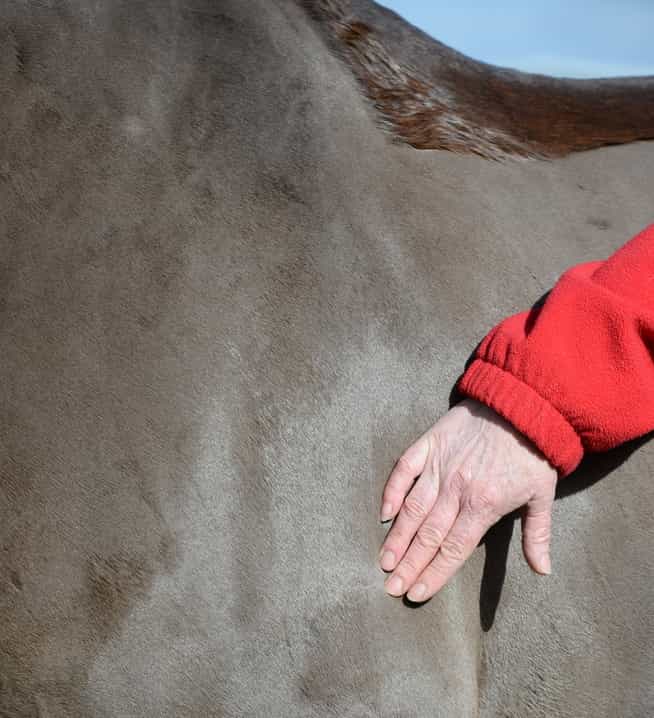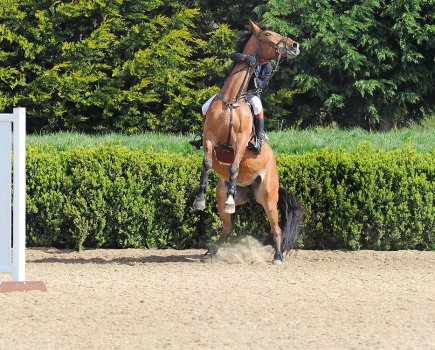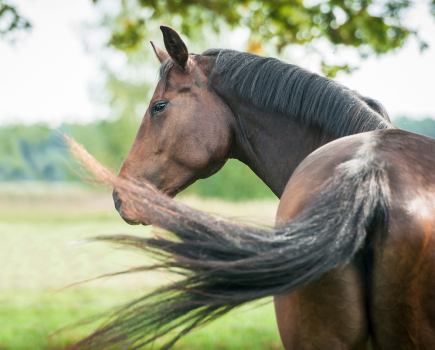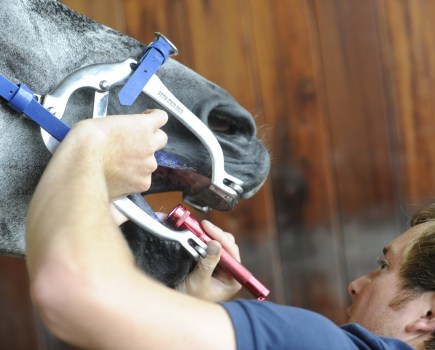Ever wondered what it’s like to be an equine sports massage therapist? Here, therapist Eleanor Frost explains what her job entails.
Equine sports massage therapist Eleanor Frost always wanted to work professionally with horses and, having a passion for equine anatomy and biomechanics, becoming an equine massage practitioner seemed an obvious choice.
“I completed a two-year horse management diploma at the local agricultural college and from there completed an equine science degree,” she explains. “While studying I worked several equine-related jobs, which gave me valuable experience in handling different types of horses.
“I first met my future teacher, Gill Carter-Morgan, when she treated my mare for a tight shoulder – it was as if the handbrake had been released and she could move again!”
Eleanor went on to enrol on Gill’s Equi-Therapy UK equine massage practitioner course.
Why I love being an equine sports massage therapist
Eleanor has three horses and her day starts with caring for these before heading off to her first appointment at 9.30am.
Eleanor’s assessment of horses includes a walk and trot up, cantering on a circle, limb and trunk function on small circles and in rein-back, plus palpitation of muscles to identify areas of tightness.
A treatment plan is implemented, which includes things the owners can do themselves in between sessions.
“I love that the days are so varied,” says Eleanor. “All the horses are so different and each one needs me to work in different ways, so they keep me on my toes.
“In between visits, I’ll do paperwork, plan my diary, speak to vets and respond to enquiries. I’m a human massage therapist as well, so I try to find time to fit this in too.”
Interested?
Training involves the completion of assignments on the equine skeletal, muscular, lymphatic and circulatory systems.
A two-hour theoretical exam and practical assessment and building up a portfolio of between 10-15 horses, providing numerous massage treatments for each, completes the course.
The portfolio and case studies are marked and a final meeting with the course tutor, grading and qualification enables you to become insured and start life as a fully-fledged massage therapist.
To find out more, visit www.equi-therapyuk.com
Pros & Cons
PRO Whether you already have a full-time job or not, becoming an equine sports massage therapist is possible alongside your normal work if you’re prepared to put in the hours. It’s worth it!
PRO No two jobs are the same so if you’re looking for a career that won’t bore you to tears, this is it.
CON If you want to do this job while holding down your current full-time job, you’ll need to be prepared to work out of hours and at the weekend.









